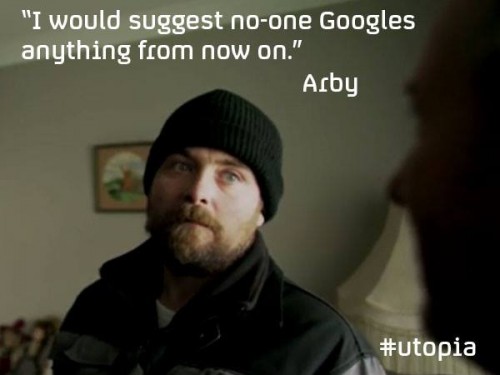Assange: Google Is Not What It Seems
October 28th, 2014
Via: Newsweek:
It was also in 1999 that Schmidt joined the board of a Washington, D.C.–based group: the New America Foundation, a merger of well-connected centrist forces (in D.C. terms). The foundation and its 100 staff serve as an influence mill, using its network of approved national security, foreign policy and technology pundits to place hundreds of articles and op-eds per year.
By 2008, Schmidt had become chairman of its board of directors. As of 2013 the New America Foundation’s principal funders (each contributing over $1 million) were listed as Eric and Wendy Schmidt, the U.S. State Department and the Bill & Melinda Gates Foundation. Secondary funders include Google, the United States Agency for International Development (USAID) and Radio Free Asia.
Schmidt’s involvement in the New America Foundation places him firmly in the Washington establishment nexus. The foundation’s other board members, seven of whom also list themselves as members of the Council on Foreign Relations, include Francis Fukuyama, one of the intellectual fathers of the neoconservative movement; Rita Hauser, who served on the President’s Intelligence Advisory Board under both Bush and Obama; Jonathan Soros, the son of George Soros; Walter Russell Mead, a U.S. security strategist and editor of the American Interest; Helene Gayle, who sits on the boards of Coca-Cola, Colgate-Palmolive, the Rockefeller Foundation, the State Department’s Foreign Affairs Policy Unit, the Council on Foreign Relations, the Center for Strategic and International Studies, the White House Fellows program and Bono’s ONE Campaign; and Daniel Yergin, oil geo-strategist, former chair of the U.S. Department of Energy’s Task Force.
The chief executive of the foundation, appointed in 2013, is Jared Cohen’s former boss at the State Department’s Policy Planning Staff, Anne-Marie Slaughter, a Princeton law and international relations wonk with an eye for revolving doors. She is everywhere, issuing calls for Obama to respond to the Ukraine crisis not only by deploying covert U.S. forces into the country but also by dropping bombs on Syria—on the basis that this will send a message to Russia and China. Along with Schmidt, she is a 2013 attendee of the Bilderberg conference and sits on the State Department’s Foreign Affairs Policy Board.
There was nothing politically hapless about Eric Schmidt. I had been too eager to see a politically unambitious Silicon Valley engineer, a relic of the good old days of computer science graduate culture on the West Coast. But that is not the sort of person who attends the Bilderberg conference four years running, who pays regular visits to the White House, or who delivers “fireside chats” at the World Economic Forum in Davos.
Schmidt’s emergence as Google’s “foreign minister”—making pomp and ceremony state visits across geopolitical fault lines—had not come out of nowhere; it had been presaged by years of assimilation within U.S. establishment networks of reputation and influence.
On a personal level, Schmidt and Cohen are perfectly likable people. But Google’s chairman is a classic “head of industry” player, with all of the ideological baggage that comes with that role. Schmidt fits exactly where he is: the point where the centrist, liberal and imperialist tendencies meet in American political life.
By all appearances, Google’s bosses genuinely believe in the civilizing power of enlightened multinational corporations, and they see this mission as continuous with the shaping of the world according to the better judgment of the “benevolent superpower.” They will tell you that open-mindedness is a virtue, but all perspectives that challenge the exceptionalist drive at the heart of American foreign policy will remain invisible to them. This is the impenetrable banality of “don’t be evil.” They believe that they are doing good. And that is a problem.
Research Credit: alvinroast
